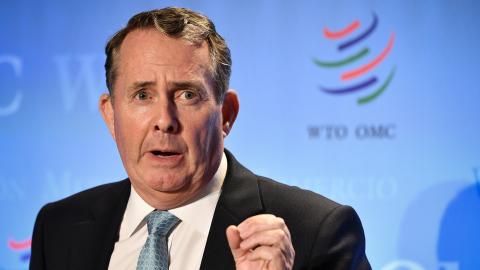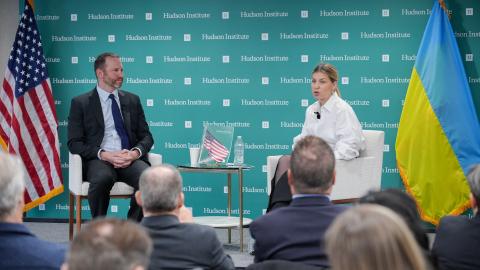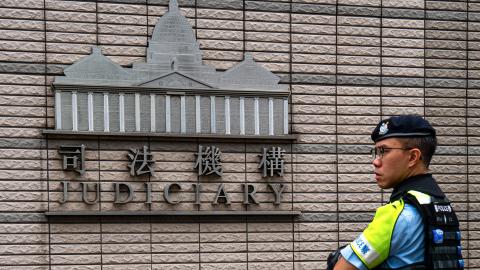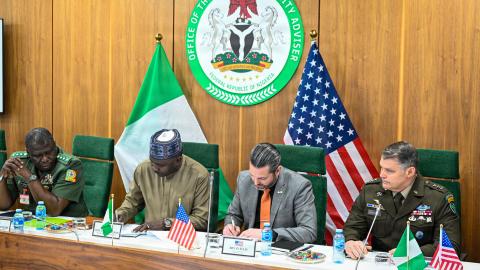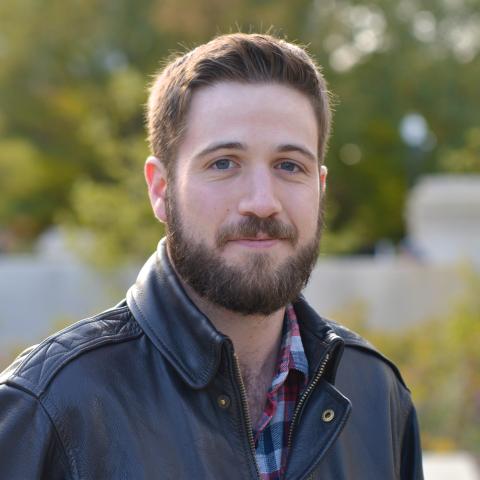
Martyrs of Communism
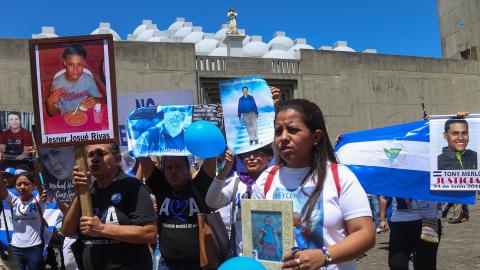
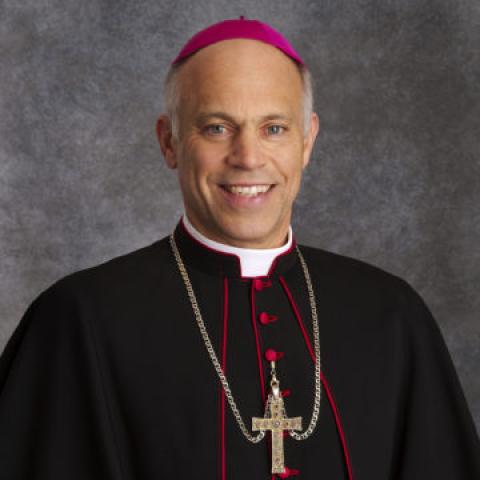
Roman Catholic Archbishop of San Francisco and Founder and Chairman, Benedict XVI Institute
Distinguished Senior Fellow and William E. Simon Chair in Catholic Studies, Ethics and Public Policy Center
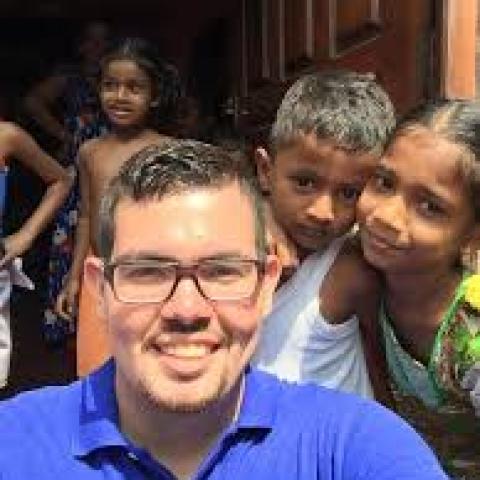
Victim of Nicaragua’s Persecution
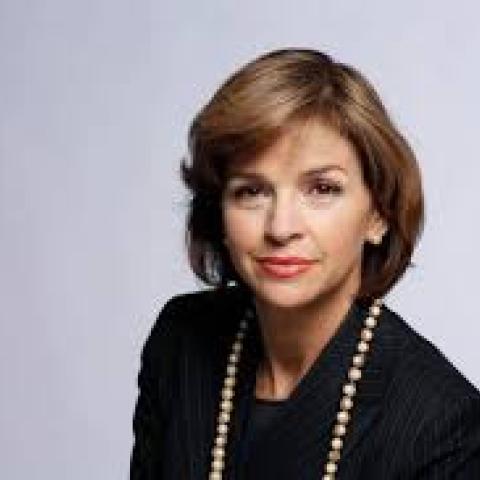
Strategic Communications Specialist
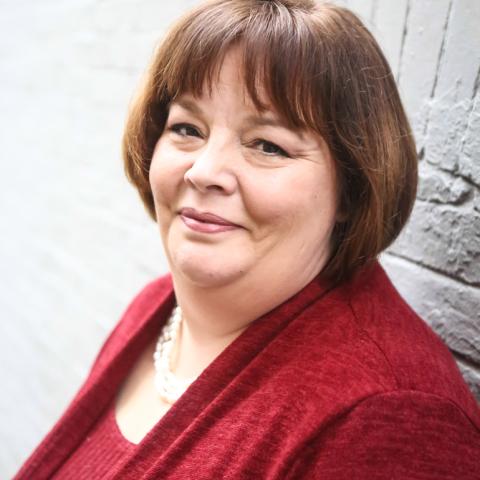
Director, Martyrs of Communism Project, Benedict XVI Institute
Earlier this year, international headlines reported that Nicaraguan human rights leader Bishop Rolando José Álvarez was exiled. The Nicaraguan regime had recently thrown him and hundreds of Nicaraguan priests into prison without basic due process for spurious, political reasons. But media coverage did not evaluate how this persecution fits into a pattern of repression found today in China, Cuba, Venezuela, and other Communist and Marxist governments. Religious persecution has been a feature of such regimes since the Soviet era, when the Communist government envisioned the eradication of all religious organizations.
For most of the twentieth century, Soviet and Eastern European Communism imprisoned priests, pastors, rabbis, and imams. Members of religious communities disappeared by the thousand into gulags and execution cellars. In Eastern Europe, resistance heroes included Polish Cardinal Stefan Wyszyński, Hungarian Cardinal Jozef Mindszenty, and Croatian Cardinal Aloysius Stepinac—the latter two of whom were subjected to show trials and long prison sentences. They became famous in the West for their faithful courage.
Across the Soviet bloc, places of worship were closed and destroyed unless they belonged to approved, Communist-controlled religions. Police relied on surveillance, threats, coercion, regulation, cooptation, and atheistic education. These tools were used to varying degrees from Joesef Stalin’s reign of terror and Nikita Khrushchev’s crackdown, to the more selective persecution between 1965 and 1985, and straight through to the end of Mikhail Gorbachev’s glasnost. These same tools, enhanced by high tech, are used today in Beijing, Managua, and Havana.
To discuss modern religious persecution by far-left regimes and the martyrs and heroes of these systems, a panel of experts will examine common ideology and practices of the repression of churches in China and Latin America. Archbishop Salvatore Cordileone will open the discussion with a keynote address titled “Why Marxist and Neo-Marxist Regimes Fear Religion.” Then Nina Shea will speak about her Hudson report Ten Persecuted Catholic Bishops in China, which details the Chinese government’s oppression of Catholic clergy.
Episode Transcript
This transcription is automatically generated and edited lightly for accuracy. Please excuse any errors.
Nina Shea:
Welcome your Excellency and the Hudson Live and remote viewing audiences. We have a critically important but neglected issue today before us. It’s the persecution of believers by the far left regimes and the martyrs and heroes of these systems, especially those in the modern period. We will be discussing in particular China and various Latin American countries. The victims of Communism Museum accepted there are few Americans paying attention these days to the threat that did not end in the Cold War and the threat of communist ideology that is and the implications to this threat. And it is my privilege now to introduce our keynote speaker, Archbishop Salvatore Cordileone. He is the Roman Catholic Archbishop of San Francisco and is one of the few religious leaders in America who is focusing on the persecuted believers under communism and the modern versions of this Marxism today.
And as the founder and chair of Benedict XVI Institute, Archbishop Cordileone has taken on a program or campaign to pray and learn about the situation of persecuted Christians on mainland China and Hong Kong, including Jimmy Lai, and he has directed the institute to launch a multi-year program to look at, to tell the stories of these heroic martyrs of communism, both in liturgy and hymns and in the arts. So, please join me in giving a warm welcome to Archbishop Cordileone.
Salvatore J. Cordileone:
Thank you, Nina. I’m so happy to be able to make whatever contribution I can to this cause, to raise up the awareness of the victims of communism, martyrs and what we call white martyrs. There are red martyrs, those who physically die, but also others who suffer horrendous persecution but for the sake of their faith, but short of death whom we call white martyrs. I guess my first personal exposure to such a white martyr was back in 1996. I was living in Rome at the time and Pope St. John Paul II celebrated his 50th anniversary of priesthood and to do so, he invited his classmates from around the world to join him as fellow Golden Jubilarians ordained that year in 1946 to celebrate with him. Fortunately, I had a friend from the diocese I was from who was in that class and he came to partake of the celebrations.
I was able to join in on them and one in particular where I heard the testimony of an Albanian Jesuit priest by the name of Anton Lulit. He’s not all that well known as are some other martyrs and white martyrs, but the story of his life as he told it to us that night was clearly one of heroic virtue. Shortly after he was ordained a priest, the communist regime seized power in Albania. He was arrested, thrown into jail and imprisoned for more than 20 years before finally being released. He answered the call to serve God and spent the first decades of his priesthood unable to say mass locked up in an Albanian prison cell, tortured and beaten for Christ. That really made an impression on me and one that has stayed with me ever since. A reminder of the heroic sacrifices some are called to make for Christ, such as the bishops in China, whose names and stories Nina and the Hudson Institute are bringing to the world’s attention. So, thank you for that too, Nina.
We know religions have much to fear from Marxist and neo-Marxist regimes as we are seeing today in China and so many other places, Venezuela, Cuba, and now Nicaragua. Human rights hero Rolando José Álvarez is one of hundreds of Nicaraguan priests in prison and exiled in the last years and as I’m sure you know, he’s finally been released and repatriated to Rome thanks to the intervention of Pope Francis. Nicaragua is following the path laid by totalitarian regimes in Russia, Cuba, China and elsewhere, shut down the church because otherwise the forgotten and persecuted will have a voice. Protestant pastors are facing persecution as well.
The Victims of Communism Museum reminds us that 1 billion people still suffer under communist regimes. But my question for today is a different one. It’s reversed. Why do communist and totalitarian regimes fear religion and fear it so deeply? Communism it turns out, is a jealous and demanding God who cannot afford to tolerate any competitors for people’s loyalty. Not family, not friends, not country, most especially not God. As professor Orlando Figes puts it in The Whisperers: Private Life in Stalin’s Russia, he says, “They made a cult of the selfless revolutionary constructing a new morality in which all the old commandments were superseded by the single principle of service to the party.”
Authoritarian regimes seize what they need in order to hang on to power. They’re not so much in search of souls as they seek to strip the populace of their souls to create a soulless society because communism seeks not only the submission of its conquered peoples, but their conversion to a new faith to strip their souls and replace it with blind devotion to this new faith. As Professor Figes also says, “The party’s doctrines were to be taken as articles of faith by all its followers. Its collective judgment was to be accepted as justice. Accused of crimes by the leadership the party member was expected to repent, to welcome its verdict against him. To defend oneself was to add another crime, dissent from the will of the party. This explains why so many Bolsheviks surrendered to their fate in the purges even when they were innocent of the crimes of which they stood accused.”
And as Georgy Pyatakov explained to a friend after he was expelled from the party as a Trotskyite in 1927, “A true Bolshevik would be ready to believe that black was white and white was black if the party required it.” Father Eleutherius Winance, a Catholic missionary who was imprisoned and expelled from China in the early 1950s called it the paradox of a philosophy of life that is utterly materialistic on a metaphysical level, but quite frankly spiritual and even idealistic on its psychological level. Father Winance’s book, The Communist Persuasion: A Personal Experience of Brainwashing plumbs from his own experience of how the Communists went over so many. Now, I learned about this book from my staff who apparently bought the last used copy available on the internet, so if you’d like to read it, try to persuade some insightful publisher to bring it back as a potential classic of communist studies because I haven’t read it either. Maggie pointed it out to me so I want to read it too. So, try to find a publisher to do that.
Fear of course played a huge role fear for oneself and even more fear for one’s children as did hunger and sleep deprivation. Communists also persuade people to spy on one another, breaking the deepest bonds of solidarity between the closest of family members, even parents and children. But the communists utilize more than fear. They take people’s highest hunger, hunger for virtue and ideals of sacrifice and turn it all around and use it against them. As Father Winance explains, “There’s no doubt that the communists thrill youth with their talk of justice, devotion, heroism, fraternity, patriotism, and universal love. It was a matter of replacing the old man with the new man of the socialist city. To achieve this interior renovation it was that one repudiate family, friends, thoughts, desires indeed one’s own self and one’s faith.”
His quote here brings to mind that old phrase, useful idiots that we’re all aware of coined to describe this very type of individual and it is a strategy which remains very effective to this day. Father Winance continues, “Young people were told there is only one thing that matters to serve the people. There is only one motto, obey the party in all things.” Father Winance describes three prongs of propaganda as examination of conscience, abjuring of one’s loyalties and so-called scientific conversion. The process begins with, “the creation of a very specific psychosis, the feeling that one has led a very blameworthy and criminal kind of life.”
“Not only one’s self but one’s family, friends and whole society are similarly corrupt and depraved of soul.” So, I guess you might say that the propagandists convinced the populists that they are depraved of soul so they can then make them deprived of soul. “Marxists relentlessly focus on the real defects of the existing society, not in the spirit of reform, but in order to compel absolute devotion to a visionary and imaginary future that the communist takeover will allegedly bring. Delegitimizing every good in the existing society renders it spiritually defenseless. We see this today when young people are reminded of all the sins of the American past and none of its heroism. The ideological tactics include the recruitment of the authority of science, fake science, to the revolutionary side.”
Father Winance points this out. He says, “The reasoning goes like this. The competent authorities have thought out and elaborated the official line of action. According to scientific criteria you are intelligent, devoted to the welfare of the masses and diligent about what he calls here the [foreign language].” I’m not sure how to pronounce it, it’s a Chinese word, but it’s a word that is used to describe the struggle to develop a Marxist soul. And so he says, “It therefore follows that you simply must agree with the evidence of governmental syllogism.” “Thus, the government”, as he puts it, “penetrated into the most intimate recesses of the souls of men.”
The first victim of Marxism is commitment to the truth, the mind, heart and soul surrender to the pseudoscience of party doctrine. Perversions of goodness and beauty soon follow. And let us not fail to acknowledge how these techniques continue to be used perhaps more subtly in countries that fashion themselves as liberal democracies. The COVID pandemic certainly brought this out into the open when some governments took control of the narrative and shut down any other voices no matter how expert and credible that would speak at variance with it. As one example during an impromptu press conference at the beginning of the shelter-in-place orders, so this is March of 2020, the then Prime Minister of New Zealand Jacinda Ardern rebuffed supposed misinformation that was then circulating with the following statement, “We, the government, will continue to be your single source of truth. Remember that unless you hear it from us, it is not the truth.”
The last century and our own now teach us what happens when this kind of government control reaches an extreme. On this occasion, I cannot but point to the example of the first native Chinese Bishop of Shanghai, the great Cardinal Ignatius Kung whose courageous witness to faith electrified the world. He had been Bishop of Shanghai for only five years when he was arrested in 1955 by the Chinese government. In defiance of the communists created and sanctioned a Chinese Catholic Patriotic association bishop Kung personally supervised the Legion of Mary. Those are not familiar with it. It’s a lay organization dedicated to giving veneration to the blessed Virgin Mary. Hundreds of its members, including many students were arrested and sentenced to decades of hard labor. Months after his arrest, Kung was taken out of that [foreign language], the struggle session for a struggle session in an old dog racing stadium. With his hands tied behind his back and wearing a Chinese pajama suit the five-foot tall Bishop was pushed forward to the microphone to confess.
Instead, he cried out, long live Christ the king, long live the Pope. The crowd responded immediately, long live Christ the king. Long Live Bishop Kung. Kung vanished behind bars for 30 years, much of it in isolation with no visitors, letters or money to buy essentials. After decades of silence, he was permitted to join a banquet organized by the Shanghai government to welcome Manila’s Cardinal Jaime Sin. Cardinal Sin and Bishop Kung were seated on opposite ends of the table so they could not communicate. During the dinner Cardinal Sin suggested that each person should sing a song to celebrate. When the time came for Bishop Kung to sing in the presence of Chinese government officials and the Patriotic association bishops, he looked directly at Cardinal Sin and sang, those of you familiar with scenes in Rome at St. Peter’s will recognize this phrase and melody << Tu es Petrus, et super hanc petram aedificabo Ecclesiam meam >>. You are Peter and upon this rock I will build my church.
He was a counter witness to the tactics that communist regimes always used, not simply stamping out religion but imposing a secular religion in its place. As associate professor at Northumbrian Law School, David McGrogan explains in a recent article, it is a matter of the state acting as pastor and governor of souls. He observes, “Secularization appears increasingly to mean the replacement of church by state in quite literal terms with the state presenting itself as the means for realizing a kind of temporal salvation and the structure of government taking the form of a mechanism precisely for the management of the circulation of merits and faults. Motivated”, he adds, “not by the spiritual well-being of the citizenry but rather by power, prestige, and money.”
The witness of the martyrs and white martyrs matters. It matters that we expose the false promises of Marxist ideologies lest history repeat itself. In 2022, the Victims of Communism Foundation released a report on us attitudes towards socialism, communism, and collectivism synthesizing data from 2,100 US respondents of all ages. Results, only 63 percent of Gen Z and Millennials compared to 95 percent of the older generation believe the Declaration of Independence better guarantees freedom and equality than the communist manifesto, only 63 percent. It matters to the 10 bishops persecuted by the Chinese government that we remember them and that those of us who are Catholic pray for them. That matters even more to us for our own spiritual good. And so this is why I’ve asked the Benedict XVI Institute to launch this new multi-year project telling the story of these heroic martyrs of communism in liturgy and hymns and also in paintings, poetry plays, videos and essays partnering with the Victims of Communism Museum among others.
Art and prayer speak where words fail. The arc of communism may be long and it may disguise itself under different names, but it begins with the false promise that government without God can usher in utopia and it ends with the persecution of the church for daring to speak out against oppression on behalf of the forgotten. November 7th is Victims of Communism day that should be better known across America. As believers we do well to recognize it also as the martyrs of Communism day. What do Marxist regimes fear about God? Most of all, the power of a people united in faith and willing if necessary to suffer for it. The canceling out starts with the artists, poets, philosophers and priests because they’re the ones who are the cultural influencers who shape the soul of the society.
Again, they have to strip the society of the people of their soul. The clergy in particular are singled out for oppression by communist and neo-Communist regimes as they are showing now in both China and Nicaragua because our very existence makes a bold claim to loyalty far above the state. People who are committed to living God’s laws will oppose the power of the state when it violates those laws. Pope St. John Paul II’s visits to Poland are a shining example of the power of Christian solidarity, to dismantle communist attempts to dominate men in body and soul. So, I’m speaking this now. I’m being very bold speaking it in the presence of the most renowned biographer of our saintly pope. I know he doesn’t like to be called the biographer because there are others, but you’re certainly the most renowned.
George Weigel:
Go right ahead.
Salvatore J. Cordileone:
I was going to do better call you the most renowned biographer.
George Weigel:
Even better.
Salvatore J. Cordileone:
So, he wrote an article in First Things on the 30th anniversary of the Imposition of Martial Law by General Jaruzelski, prime minister and head of the Polish Communist Party at the time of his visits. And George, you said there in that article, “John Paul’s second pastoral pilgrimage to his homeland in June 1983 did a lot to raise the spirits of his countrymen, who rallied their energies such that by 1987 the Pope could spend his third pilgrimage home laying the cultural and moral foundations for a post communist Poland, which was born two years later in the revolution of 1989.” And he continues there, “As the historical record now makes clear John Paul and Reagan had it right, the power of moral conviction aroused could be an effective antidote to communist tyranny. Politics and economics are important. What drives history over the long haul, however is culture. What men and women cherish honor and worship, what they’re willing to stake their lives on and their children’s lives on.”
Let us together listen to the voices of the martyrs of communism. Let us remember they’re heroic witness to what happens when government tries to displace God and the souls of its people. And let us remember that giving our first loyalty to him and living in accordance with the higher moral law he has entrusted to us. That is what builds a civilized society. Simply put, totalitarianism doesn’t work. It only produces massive misery. Living in accordance with the will of the God of Revelation does work. As a powerful example. I will end here where I started, Father Anton Lulit. Here are the very words he spoke to us that night in the Paul VI Audience Hall in the Vatican.
“I had recently become a priest when the communist dictatorship took over in my country. Some of my comrades were shot and died as martyrs of the faith. Instead, the Lord asked me to live. On 19 December 1947, they arrested me and charged me with provoking unrest and with propaganda against the government. I lived in solitary confinement for 17 years and for many more in forced labor. My first prison in that freezing month of December was a laboratory in a village situated in the mountains. I stayed there for nine months, forced to crouch on hardened excrement and never being able to stretch out because the space was so small. On Christmas night that year they hung me up with the rope passed under my arms. The cold gradually crept up my limbs and when it reached my breast and my heart was about to give in, I gave a desperate cry.”
“My torturers arrived, they pulled me down and kicked me all over. That night in that place and in the solitude of that first torture, I experienced the real meaning of the incarnation in the cross. But in this suffering I had beside me and within me, the comforting presence of the Lord Jesus, the eternal high priest. At times his support was something I could only call extraordinary. So great was the joy and comfort he communicated to me. But I have never felt resentment for those who humanly speaking robbed me of my life. After my release, I happened to meet one of my torturers in the street. I took pity on him. I went towards him and embraced him. They released me in the 1969 amnesty. I was 79 years old.”
Surely no one had more cause for resentment than he. His entire priesthood was spent not making the sacrifice of Christ present sacramentally on the altar through the celebration of the mass. Rather, he made Christ’s sacrifice present in a different way by incarnating the mystery of the Lord’s passion and sacrifice in his own tortured flesh. And where did this fidelity of his to Christ lead him and in his own words, extraordinary joy and comfort. And I would add given what he recounted about his encounter with his torturer on the street, also forgiveness, also forgiveness. What an extraordinary testimony and yet how utterly Christian.
Nina Shea:
Thank you so much Archbishop for your call to prayer and call to action on behalf of the persecuted. I’m going to now speak a little bit about China and my recent report. So, China has 1.4 billion people and it’s really an exceptional American who can name a single prisoner of conscience or victim of persecution there. This, despite the fact that China’s responsible for ethno-religious genocide against the Uyghur Muslims according to the US government and has long been designated by the State Department as one of the world’s worst persecutors of religion. My new study released by Hudson shows that repression against the Catholic Church in China has intensified since the Vatican’s provisional agreement with China in 2018 on the appointment of bishops. This persecution of Catholic Christians demonstrates that China is hostile to religion across the board, not just the Uyghur Muslims, the Tibetan Buddhists or Falun Gong.
Though it makes different security excuses for doing so for each group. It wants to control religious groups and religious beliefs or else eliminate them. As the Archbishop says, it wants to have a monopoly on truth. I was able to compile a list of 10 Chinese Catholic bishops, all Vatican proved, who are currently in indefinite detention, have disappeared or been forced out of their Episcopal post by the Chinese Communist Party. And I want to thank Christopher May, who is here today for his valuable help in the research of this report. Cardinal Zen in Hong Kong the 10th Archbishop is under open-ended investigation and under heavy surveillance by security police for his vocal opposition to the Chinese religious policy. To evade western sanctions the Chinese Communist Party uses less bloody and more subtle methods of coercions than was used by the Soviet Bloc during the Cold War against these bishops and has avoided the show trials and violent torture of the Malay era. It takes pains to cover its tracks and the Vatican does not publicize the list of persecuted bishops or any information on human rights abuse in China.
And this is tightly controlled. This information is tightly controlled, I must emphasize, by the Chinese government, all of which makes it incumbent on us who have free speech to speak up about the cruel coercive policies of a party that presents itself as a benign model for the rest of the world. Baoding’s Bishop James Su suffers the longest continuous secret detention, 27 years so far after he led a Marian procession. That is a procession to a shrine to the blessed mother. The CCP had previously imprisoned and severely tortured him. When Zhao’s Bishop Peter Zhao is in secret detention following an arrest just last January this year, he has been placed in secret to detention without due process six times since the agreement was signed. Bishop Augustine Cui Tai of Xuanhua Diocese was last arrested three and a half years ago and placed in secret indefinite detention for the fourth time since the deal.
And this has continued a cruel 31-year pattern against him. His congregants call him their shepherd who has become a sacrificial lamb. Repeated detention without any due process aimed at thwarting their Episcopal ministries. Seven mainland Catholic bishops are currently in this form of indefinite detention. In between these detentions, they carry out their Episcopal roles as best they can, training and ordaining priests, preaching the gospel, faithfully keeping Catholic teaching and directing charities. Their perseverance inspires the faithful of their diocese in good times and bad and they consequently have dedicated, the congregants have dedicated special prayers and hymns for them.
My reports gives examples of this. Having spent much of the last 30 years in detention, Bishop Julius Jia was placed under house arrest in 2018. In 2020, police transferred him from the house to a military hotel where his diocese believes he remains. Police recently dismantled the orphanage he has run for the past 30 years. There in defiance of state sinicization laws as they’re called by President Xi Jinping. He allowed children to pray, that’s forbidden. In May 2021, local police closed the seminary of Xinjiang’s Bishop and Joseph Zhang and placed him in indefinite detention at an unknown location. He was arrested soon after having cancer surgery. Frequently all the diocese and relatives are told is that they have been taken away on a vacation. Sometimes they’re confined to a military hotel, a police cell, a nursing home, a remote private house or a church facility where they’re isolated from their diocese and where they’re not allowed to appear in Episcopal garb or carry out a bishop’s ministry.
Bishop Melchior Shi of Tianjin has been detained for the past 15 years in his parish church compound. According to an NPR reporter who visited him about a decade ago, he spends his days reading his study except when the government has allowed him out to hold last rites. In August, the Vatican reported that China will “officially recognize” the archbishop now 95 and a half years old and declared this a positive fruit of the dialogue. It’s a bitter fruit. The gesture aims to influence public opinion. It’s on par with Beijing’s practice of releasing prisoners of conscience once they’re on their deathbeds. Shanghai’s Bishop Joseph Xing at age 48 and having served as a bishop for six years with government recognition, although he never joined the Patriotic Association went missing in 2011. Last year in a tacit acknowledgement that he is being persecuted the Vatican expressed hope for a “just and wise” solution to his case as well as to that of Bishop Thaddeus Ma, his successor who has been tamed by the government at a Shanghai seminary since 2012.
In violation of the 2018 agreement last year to replace them, the government unilaterally installed Bishop Shen Bin, who also heads a bishop’s council considered illegitimate by the Vatican. The Vatican protested but eventually approved the Shen transfer for the sake of church unity. As the new bishop of Shanghai, Shen has been emphatic that the Church of China must be independent of foreign influence, that is the Vatican influence, and must be democratically administered. He is embarked on a campaign to “reinterpret” the Bible as he recently told a meeting with Catholic Church heads in Hong Kong to their shock. Shen opened the meeting by hailing the CCP’s recent victorious 20th Communist Party Congress and saying that its spirit would guide the meeting towards “fully implementing” Xi Jinping’s thought on socialism with Chinese characteristics for a new era. He then declared it’s necessary to promote sinicization of China’s Catholicism.
So, sinicization is the CCP campaign to conform religion to its doctrine. As a precondition of the agreement, China had Pope Francis demote Bishop Vincent Guo from his position as Mindong’s diocese principal bishop and replace him with Zhan Silu, a government appointed bishop who had been excommunicated. Then auxiliary bishop after the excommunication was lifted and he was approved by the Vatican and Guo was demoted then auxiliary Bishop Guo faced restrictions in his pastoral ministry and was evicted from his home, forcing him to sleep on the street in wintertime. Later the government allowed him back in after an international uproar but cut off his utilities and arrested and tortured some of his priests. In 2020 he finally resigned. His whereabouts are on now unknown. The Vatican approved Bishop Zhan Silu promptly led 33 Mindong diocesan priests to a formation course at the Central Institute of Socialism with the CCP’s united front and declared with fervor, “To carry out the sinicization of religion with determination, we will continue to follow a path that conforms to socialist society.”
A few weeks ago, another Catholic Bishop Peter Liu of Yibin diocese led his priests and nuns on a “red tour of gratitude” to the party for them to learn about the party’s heroes and thought. He declared he wanted to “further enhance” the recognition of the great motherland, the Chinese nation, the Communist party of China and socialism with Chinese characteristics. Diocese by diocese it seems China’s Catholic Church leadership is being ideologically transformed into just another united front apparatus. Cardinal Joseph Zen Bishop Emeritus of Hong Kong is a prominent figure in the Catholic Church known worldwide for his public criticism of China’s repressive policies including against the church. It is widely recognized, including by Pope Francis that he is being persecuted because of this.
Zen explained in an open letter, “I speak out because I am the voice of the voiceless. In China there is no freedom of expression.” Now the CCP has stifled his dissent in Hong Kong. In 2022 police arrested him twice. For two months nonagenarian faced the daily ordeal of a trial over a minor regulatory infraction for which he pleaded not guilty and was convicted and fined. Authorities also began an open-ended investigation of him under a national security law. Not only could he face a life sentence for the sweeping charge of colluding with foreign forces, the diocesan school system could also be at stake as Beijing’s newspaper in Hong Kong had threatened.
He still speaks out against church policies he doesn’t like or other issues, but no longer is he able to speak about policies in China from China. All 10 bishops are primarily persecuted for being conscientious of objectors or vocal opponents of the Catholic Patriotic Association, a mal-era group founded to control Chinese Catholics. The Vatican does not recognize the association as legitimate. To join clergy must pledge independence from the Holy Sea. This has been a party goal since the 1950s when China expelled the Papal ambassador and as the archbishop has already explained, imprisoned Shanghai’s Cardinal Ignatius Kung for 30 years for his refusal to renounce papal authority.
Independence from the successor of Peter is incompatible with Catholic doctrine Pope Benedict XVI asserted in his 2016 letter establishing principles for the Chinese Catholic Church. To make matters worse around the time with the agreement that with the Vatican was signed, China put the Chinese Patriotic Catholic Association under the direct control of the CCP’s propaganda arm United Front work department, which Chinese President Xi Jinping calls his magic weapon. It has doubled down on pressing mainland bishops into it, though the Vatican stated the deal only pertains to Episcopal appointments. The Vatican-China agreement makes no accommodation for bishops to opt out of the association or any provision against the persecution of bishops. Few outside of China know these 10 persecuted bishops, even though they’re an essential part of the faithful leadership of the church, they ensure that the 400-year-old Chinese Catholic Church continues in communion with Rome and follows Catholic teaching.
And they stand as a testament to the reality that China represses the Catholic Church along with all its other religions, the Chinese religions. The details of their ordeals expose the true repressive character of the Chinese Communist Party rule. And whether the US opposes this and speaks out against it and against the other religious repression in China reveals the character of our nation. Religious freedom should be one of our foreign policy priorities. It is part of our heritage, customs, and constitutional law. Religious freedom is part of American exceptionalism. In my report I gave a list of recommendations for the new administration in Washington. In the interest of time, I will say in conclusion that foremost among these is that President-elect Trump should use the bully pulpit to highlight the suffering of these 10 bishops as President Reagan did to great effect with Soviet communism by underscoring their cruel treatment.
By underscoring this treatment, Reagan thoroughly discredited the regime on moral grounds as well as saving many lives. The President-elect should give a major address to the American people about China’s religious repression against Catholics, other Christians, Turkic Muslims, Tibetan Buddhists, and Falun Gong practitioners. By executive order, he should make the issue of religious freedom in China and elsewhere a foreign policy priority as he did in his first term. Thank you very much. I haven’t said much about Vatican policy in my statement just now because I am proud to introduce my long-term friend, George Weigel, who holds the William E. Simon chair at the Ethics and Public Policy Center in Washington DC. And he is the world’s foremost biographer of Pope John Paul II and is expert in Vatican policy since under the communist regimes of the Cold War period and going forward. He has authored two extraordinary accounts of on these topics, Witness to Hope, his book, Witness to Hope about John Paul II, his biography and The End and The Beginning: John Paul II and The Victory of Freedom, The Last Years and The Legacy. So, please welcome George Weigel.
George Weigel:
Thanks, Nina. And hello everyone. I want to thank Nina and Maggie for inviting me to join you today. It’s always great to be with my old friend Archbishop Cordileone, whom I first met over a poker table about 25 years ago and into that we will not go any farther. Nina and Maggie have asked me to compress 80 years of history into 10 minutes. That will be an item in favor of my beatification when that clause is introduced. So, let me try. In the first 20 years of the Cold War Vatican policy, Vatican speech towards the communist world was openly hostile and critical. But in the late 1960s, Pope Paul VI and one of his most senior diplomats, a man named Agostino Casaroli came to the view that a new approach was required, particularly vis-a-vis the communist regimes of central and Eastern Europe, hence the name Ostpolitik or Eastern politics.
Their concern was to maintain the sacramental life of the church. This required bishops who could ordain priests, and so they believed it was necessary to reach and accommodation with those communist regimes in order to preserve the church’s sacramental life. Now, the prior premise here, of course, was that the Yalta division of Europe was permanent. This is going to go on for as long as anybody anybody can see. Perhaps there might be some convergence of 50, a hundred years down the line between increasingly social democratic west and liberalizing communist world. But for the foreseeable future, this was going to be the division symbolized by the Berlin Wall, which by the way, fell 35 years ago this past week, was a permanent thing. So, the Ostpolitik did several things. The Ostpolitik of Paul VI and Casseroli. First of all, it completely dropped vocal criticism of communist regimes. That was over.
Negotiations began led by Casseroli with different communist regimes, Czechoslovakia, Hungary, Poland, et cetera, to try to find what Casseroli described in Latin as a modus non moriendi, a way of not dying. This went on for some 15 years and was a complete failure. A complete failure, as I think I have documented in both the books Nina was kind enough to mention and numerous articles. First of all, it demoralized faithful Catholics behind the iron Curtain. The good people felt abandoned. Secondly, and perhaps paradoxically, but not so much paradoxically, given what both the Archbishop and Nina have said, it increased persecution. The ratchets were tightened on the persecuted church. Even more interestingly, and this is really the first third of the second volume of my John Paul II biography. The Vatican itself was deeply penetrated by East Block Intelligence Services, which was a major problem in conducting these negotiations because the bad guys knew before the negotiation began what the good guy position was going to be. And yet in Rome today, the Casseroli Ostpolitik is regarded as a great success.
This is like saying the Babe Ruth trade to New York was really a great success for the Boston Red Sox. This is absolutely mindless, but this is what they think. Now, all of that changed on October 16th, 1978 when the Bishop of Krakow, Karol Wojtyla, who knew the failure of the Ostpolitik in his bones, was elected Pope. And while he very cleverly made Casseroli his Secretary of State in a kind of good cop, bad cop routine so that no charges of reneging on deals could be made, “I mean, what do you mean I’m reneging on the deal. Here’s your guy. He’s my Secretary of State.”
He proceeded to take the public case for religious freedom to the United Nations, especially during that first trip to Poland in June 1979 and afterwards and indeed throughout the world. John Paul II understood why the Ostpolitik had failed. As his longtime secretary, Stanisław Dziwisz, now Cardinal Dziwisz, the Emeritus Archbishop of Krakow put it to me over dinner one night. “This was not like a government and its parliamentary opposition.” People misunderstand the nature of this contest. It was, and this is Dziwisz’s own term, “All war all the time.” All war all the time. This is a zero-sum game.
There’s no fifty-yard line to vary the image. Somebody is going to win and somebody is going to lose. Now beginning with that June ‘79 visit to Poland, which turbocharged a human rights resistance throughout East Central Europe that had begun to form in the mid to late 1970s, what we now know as the revolution of ‘89 began to unfold. And of course this is the 35th anniversary of its symbolic high point, namely the fall of the Berlin Wall on the night of November 9, 10, 1989. If you ask yourself why that happened, when it did and how it did I think you have to recognize that a revolution of conscience.
What Father Józef Tischner, a great friend of John Paul II, distinguished philosopher, called a great forest planted by aroused consciences, created new forms of political resistance, spiritual resistance essentially in character, that eventually proved more powerful than those who had the monopoly on material of force. So, by being a public human rights advocate, by standing firmly with the persecuted, by keeping the spotlight on repression, John Paul II became a true agent of liberation in the communist world, which is by the way, why he was never allowed into China.
Now, John Paul II could have had the deal with China that the Holy Sea made in 2018, which as Nina indicated, gives a significant perhaps even the dominant role in the nomination of Catholic bishops in China, not to the state but to the Chinese Communist Party. It’s even worse than giving it to the state. This, by the way, is a violation of the teaching of the Second Vatican Council and its decree on the office of Bishop, which says that no concession should be made to civil authorities and the nomination of bishops. That teaching of the council was then embodied in Canon 377.5 of the Code of Canon law.
So, what was done in 2018 in fact violates the church’s own self-understanding and is technically illegal. So, why did this happen? It happened because, excuse me, as I became aware really 30 years ago, there is and still is, there is a cadre of largely Italian Vatican diplomats who have been obsessed for 30 years with achieving full diplomatic relations between the Holy Sea and the People’s Republic of China. And they see this deal vis-a-vis the church in China as a first step towards that.
Why do they want that deal? Which among other things would require the Holy Sea to sever diplomatic relations with the Republic of China on Taiwan, the first Chinese democracy in 5,000 years of Chinese civilization. Why do they want this? They want it, because they say it will give them a place at the table with the rising world hegemon to which I reply, say you get to the table. Why do the people to whom you have kowtowed for 10 years or 20 years, why are they going to pay you the slightest bit of attention? They know they can roll you. That’s why you’re here. So, it makes no political sense. It also makes no spiritual sense. And I once said this to the present foreign minister of the Vatican Archbishop Gallagher. I said, you don’t understand the nature of my criticism here. You think this is American conservative politics.
I said, it’s not. Chinese communism is no more eternal than any other form of communism. This regime is going to go at some point and it’s showing signs of erosion even as we speak here. They have huge demographic problems. They have increasing economic problems. The Chinese communist regime is not immortal. When it goes, I believe China will be the greatest field of Christian mission since the Europeans came to the Western hemisphere in the 16th century. It’s going to be a completely open field for evangelization. And I said to Archbishop Gallagher, who is going to have the comparative advantage in that? The people who had made deals with the regime that has just been deposed or the people who resisted it? You don’t see the Mormons making deals with the Chinese government. You don’t see evangelical Protestants making deals with the Chinese government. My concern is that the future evangelization of China is going to be deeply impeded by this policy.
So, you have this cadre of Italian Vatican diplomats who have been pressing on this. They propose this deal to John Paul II. He says, “No thanks, we’re not going to do that.” They propose it to Benedict XVI. He says, “No thanks, we’re not going to do that.” Then they find themselves with a pope who either out of ignorance or lack of experience or naiveté says yes. And has Nina has demonstrated in this really extraordinary report, which I hope everyone reads and gives as much circulation to as you can in your various networks, it hasn’t worked. In fact, just as in the Ostpolitik of the late 60s and 1970s, things are getting worse.
I said in a column recently that in certain parts of the Vatican, they’re like the Bourbons in France, they have learned nothing and they have forgotten nothing. And so we have this really now scandalous situation that Nina has documented so well. I believe this is going to be a significant issue at the next papal conclave. But for now, as Nina indicated and Archbishop Cordileone had previously indicated, the best thing we can do is to keep the spotlight on, to be in solidarity of prayer with these brave men and women in China and to be ready for that moment when it becomes possible to freely speak a word of gospel truth in China in the future. Thank you.
Nina Shea:
Thank you, George. I think that answers a big question people always, they’re asking me why is this happening? Why is the Vatican putting up with this? Why did it just renew the deal for the next four years last month? Now we’re going to conclude with a panel discussing the rise and spread of communism in Latin America. And leading that discussion will be Maggie Gallagher. She will introduce the panels and Maggie is the director of the Martyrs of Communism project of the Benedict XVI Institute in the Archdiocese of Archbishop Cordileone. Maggie.
Maggie Gallagher:
Come take your seats. Thank you. Wow, this has been an amazing event so far. I wanted to just let you know that we appreciate your being here and we’d appreciate your help moving forward as the Archbishop and the Benedict XVI Institute looks for more ways to highlight and tell the stories of the martyrs and white martyrs of communism. As the Archbishop has pointed out, one of the reasons they aren’t more well known, Pope Francis is making an awful lot of new recognition of the martyrs of communism, is that the church tends to categorize them under their national titles. So, all the martyrs of China from the 1500s onward are put in one category. But we want to pull out the martyrs around the globe who share this common that they gave heroic witness to Christ under the peculiar form of totalitarian government, which it’s a western colonial imposition on much part of the world.
So, coming up, we’ve commissioned two hymns, one for the martyrs of an offering for the martyrs of Ukraine, which is where I met one of our guests here, Helen Aguirre Ferré, when we celebrated the mass for the Requiem for the Forgotten in Miami. Then Archbishop brought Bill McGurn, Jimmy Lai’s godfather to St. Patrick’s Seminary in Menlo Park down the road from Stanford. And we commissioned a hymn for the martyrs of Chinese communism, which is by the team of Frank LaRocca and James Matthew Wilson. Really great artists. Next feast of St. John Paul II we’d like to commission a new hymn for St. John Paul and the martyrs of Polish communism. We’re going to set up an archive where people can upload their stories, their witnesses, so that we can locate potential spokespeople. We want to develop a short curriculum suitable for use in Catholic schools or other schools for November 7th as the Martyrs of Communism day.
And we look to you, we thank you for everything that you are doing by showing up here and caring about this project. And please if you have ideas or you’d like to help, contact me at maggie1960gallagher@gmail.com. We have two people here today. Helen’s going to introduce Marco Novoa, who is a witness to the persecution in Nicaragua and has quite a story to tell. We met him after we celebrated mass in Miami. Helen is an amazing person. She was a longtime successful journalist in Florida. She became director of media affairs in the first Trump administration, then she became communications director for Governor DeSantis. She’s from a Nicaraguan family. Her father was a political exile 50 years ago from Nicaragua. Her job here today is to give us just a brief, because we know we’re pushing the limits of time, update on the reality of Marxist and neo-Marxism in the Americas right here, particularly in Cuba, Venezuela and Nicaragua. So, Helen.
Helen Aguirre Ferre:
Maggie, thank you so much. Excellency, a privilege to be here with you and with Marco, and of course Maggie and George. There’s no doubt that the Catholic church is under assault in our western hemisphere. And leading this radical agenda is Cuba with Nicaragua and Venezuela following suit. These countries don’t follow the rule of law. You see increased violence, torture political prisoners. They limit religion and intimidate and attack religious authorities. The repression on social society you see with the beginning with bullying and then of course mob rule. The desire to destroy the Catholic Church goes to the grain of total political control by Marxist regimes. And quite frankly, the Archbishop, his Excellency did a better job than anybody that explaining as to why they attack the church. The Catholic Church has long been a source of civic health and social solidarity in Latin America. From providing essential services to promoting human and civil rights, faith-based organizations have played a crucial role in enhancing the community well-being in Latin America.
So, the idea of that civic life goes beyond religious tolerance. It’s about harnessing the values and principles of faith to build a stronger and more resilient community. So, it is then a wonder that these communist regimes want to attack the Catholic Church. Cuba’s antagonism towards the Catholic Church is well-documented. It started immediately with the triumph of the revolution in 1959. Fidel Castro particularly understood the power of the church as he was educated through Catholic educational institutions. And many of his immediate leaders in the opposition were fellow university students who were trained by, who are educated by the Jesuits and who he would send to a firing squad where they would shout Viva Cristo Rey, long live Christ the King. When the Castro regime started separating children from their families, sending them to agricultural camps for indoctrination, the Catholic Church became actively involved and they launched the Pedro Pan operation where families would send their children out of Cuba and they send them to United States.
The Catholic Church would relocate them to foster families. Many were reunited with their families early, some of course took longer because well, the Marxists were in charge, but that didn’t deter the church from having a profound effect in Cuban culture and in Cuban society. And you had Cuban leaders like Oswaldo Payá who was murdered by the regime some years back, or the Damas de Blanco, the Ladies in White who are the wives, daughters, sisters of Cuban men who are political prisoners who would dress in white and just quietly do a civil protest. March to the Catholic Church on a Sunday morning. And they would be vilified by the mobs. They would be spat upon, they would have things thrown at them.
They would be obviously movements organized by the communist government of Cuba would make sure that they were harassed in this process. One of the leaders, the founder Laura Pollan, when I was a journalist, I had the opportunity of interviewing her a few times and she told me that one time in particular, they were beaten as they were walking towards the church and sometimes they would be hit with bats or one time she said somebody stabbed her in the thigh and she felt that it was a needle.
Laura was ultimately diagnosed very shortly after with a pulmonary infection, was taken to the hospital in Havana and died. And her body was cremated before her family could get to the hospital. So, an autopsy was never able to be performed. So, you see where this type of intimidation comes from. At the same time you had Saint Pope John Paul II go to Cuba and say, “No tengan miedo.” Don’t be afraid. And the power of that message continues to resonate today. There’s no question that you see that the relationship with the church and the government, it’s complex. Bishops and priests continue to navigate an intricate system that tolerates some of the social work of the Catholic Church, like feeding the elderly, but the intimidation and the repression is increasing. And now another leader of Damas de Blanco, Berta Soler has disappeared. She was taken by Cuban authorities, and as of this moment at this time, to the best of my knowledge, her family does not know her whereabouts.
The fate of the Catholic Church in Venezuela is very similar to that of Cuba, which really shouldn’t surprise any of us because the Cuban military runs the government of Venezuela for all practical resources. Venezuela, of course, is a very rich country in natural resources. But like all Marxist economies, they run the economy to the ground. So, you see that the people of Venezuela are starving. The children in particular raiding dumps looking for food, and many are flocking to the church for support starved in many ways, not just physically but spiritually looking for help and support. And the Catholic Church in Venezuela is not letting them down by and large, but as in Cuba, the government control over the country also affects the Catholic Church in Venezuela. Just like all the other institutions in Venezuela and Cuba, the church is spied upon. Like Cuba, local authorities in Venezuela spy on all church activities.
They take note of who attends the services and records homilies. They do it openly to make sure that the intimidation is loud and clear and they want the faithful to know this as well. Venezuelan dictator Nicolás Maduro calls priests devils and cossacks and demonizes them always. The Venezuelan Catholic Church is undeterred in pushing back against the Maduro regime, and they joined many in Venezuela and the international community in denouncing the presidential elections deal in July of this year. At the conclusion of the 45th extraordinary plenary assembly of the Venezuelan Bishops Conference, CEV with their Spanish acronyms, the bishops published a statement that included an analysis of the current state of the country along with the demand that the government released thousands of detainees, including minors who were arrested in the demonstration following that country’s July 28th presidential election. Since the presidential election, the Venezuelan Congress, of course, has declared Nicolás Maduro President-elect, but the bishops continue to press on this issue.
“The presentation of the results is an essential step to maintain the citizen’s confidence in the vote and to recover the true meaning of politics”, say the bishops, “Only in this way can we move forward toward the construction of a democratic Venezuela in peace.” The Prelates continue to sharpen their criticism against the repression by the state security agencies of the government against peaceful demonstrations, as well as the arbitrary arrests and violations of human rights that occurred after the elections. They feel challenged by the suffering of the people and they renew their commitment to all who suffer. In recent years the Marxist regime in Nicaragua has also increased its repression against the Catholic Church. The church is beloved in Nicaragua. Of all of the countries in Central America it’s the largest in land mass, but it’s the smallest in population. And there is such a close tie to the Catholic Church by the people of Nicaragua, especially to the Virgin Mary in particular, which has always been professed and seen through public marches and processions throughout the country.
The Nicaraguan regime today under the dictatorship of Daniel Ortega and his horrible wife, Rosario Murillo, are determined to destroy the church if at all possible. The regime represses the Nicaraguan clergy because they teach and preach traditional Catholic social doctrine about individual freedom, the importance of the social conscious, freedom of speech and assembly, and of course freedom of religion. Ortega Murillo are envious of the strong following the Nicaraguan bishops have. So, they arrest priests, bishops and expel some including the religious sisters. Public religious processions are now banned as is the ordination of priests. However, the faithful continue to baptize their children and worship. The Catholic clergy in Nicaragua denounces the demons, the Ortega Murillo regime defense such as narco traffickers, human traffickers and child traffickers, which is a steady stream of much-needed dollars in the country. But these dollars never go to the people. It just goes to the Nicaraguan government and the Cuban government.
That was just a little slight on me, but that’s actually where it all goes. Because all forms of human trafficking are denounced by the church. Any program associated with the church in Nicaragua, including healthcare facilities and educational facilities have been closed. A big political message was sent when the beloved Bishop Orlando Alvarez was imprisoned under harsh circumstances and sent into exile. And of course, his Excellency spoke about that. This all comes at the same time when you see, and Nina spoke about China, China’s influence and presence in Latin America, in particular in these three countries, and Bolivia continues to grow. They invest in technology that provides capabilities, satellite capabilities that allows them to be able to spy on everyone within those countries. And then that information is handed over to the government. On top of that, it’s also being used as a weapon and mechanism to have those countries break relations with Taiwan.
So, you see where there’s a lot of commonalities in what’s going on with the persecution. Hopefully under the new administration . . . and Dr. Weigel was talking about it that you see that this new administration, and Nina, you were talking about recommendations as well for the administration. We have a new Secretary of State come in. Senator Marco Rubio from Miami knows Latin America. Well, for those of us who love and come from Latin America, we have great hope and desire that the United States will not be absent in this conversation and discussion and in particular with what is occurring with the Catholic Church today.
And I thank you for this opportunity and thank you so much. And I would like now to take the opportunity to introduce to you a remarkable young man who I have met. Marco Novoa is like myself. He is born in the United States, American citizen through and through. And yet in many ways his heart is Nicaragua. His parents are Nicaraguan. Marco was caught up in a movement in 2018 of political young leaders who were looking to restore freedom to Nicaragua. And it didn’t go out that way. And Marco has a story to tell, and I think through the story you will see that he’s also on a mission to restore peace and faith in Nicaragua through the Catholic Church. Ladies and gentlemen, please join me in welcoming Marco Novoa.
Marco Novoa:
Thank you so much. It’s our honor being here with you and sharing my personal experience. My name is Marco Noel Novoa. I’m an American citizen born of Nicaraguan parents. Like many others, I studied and lived in Nicaragua where I fell in love with the people and the country in general. In the United States of America, one has freedom of ideas, freedom of speech, and people are equal in the eyes of justice. In Nicaragua if you speak your ideas, the police represses you. If you protest, they attack you or they imprison you and torture you. In Nicaragua, because the church protected the lives of the protestors, the police and paramilitary destroyed crosses and religious images, rampaged through churches and beat and threatened the priests and even have imprisoned them before. I was there on the 20th of April 2018, when the police and the Sandinista government goons attacked the Managua Cathedral.
This was something personal. I was stuck in the cathedral and there was 300 people where we grabbed the benches of the church to barricade the doors because the military, the paramilitary and the police wanted to burn us inside with Molotov bombs. They even threw one and we had to turn it off. Okay, where it not for the bravery of the clergy, many people would’ve died that day. I saw students, friends of mine die in the universities, future doctors, lawyers and engineers, professionals who were killed and labeled as criminals. They were not criminals, they were students. My first glance of the oppression occurring in Nicaragua was On the 18th of April after leaving class. I witnessed the savage beating given to elderly people who were pacifically protesting injustice of their social security pensions. They were peaceful and did not threaten anyone. The next day I felt I needed to get involved.
I joined the student movement. I went to marches to protest peacefully, and then I helped by bringing food, water, and medicine to churches and universities. I helped to transport the injured and the dead. People of all walks of life were supporting us students giving donations of food, water, medicine, and money. The people of Nicaragua were rising up against the oppression of the Ortega family. I was moved by how people were willing to donate to the cause, even though they had little. I was captured on the 24th of May by police disguised as paramilitaries. I say this because I was able to see them change in uniforms in the prison. They zip-tied my legs, cuffed my hands, covered my face with my own shirt, and put a sock in my mouth, and then they started to beat me up. They took me to a clandestine location.
Here they torture me seven days and eight nights, which is nothing compared what happens in other countries. The endless tortures made it seem eternal. They put me in a cell naked and vulnerable. They threw cold water on me. They proceeded to taser me in the chest and genitals many times a day, and for many days. They would laugh and ridicule me as they put me through pain. During this time I could not tell when the days ended, nor when they started. They had my family under surveillance. They played a conversation that my dad was having with my brother, Richard.
They played the Russian roulette with me several times, putting me through psychological and physical torture. A man would put a gun, press it against my head, Chests and genitals, and pull the trigger. They would inject me with something to sedate me and something to keep me awake. As they were busy torturing me, I managed to see other fellow prisoners being tortured. Few were chained, crying with acid being poured on their bodies. I heard them cries of other ones with their nails being pulled. I glimpse some hanging from a chain from the roof cries and bullet shots.
They knew I was an American. That didn’t stop them. They interrogated me, asked me whether I was part of an organization, whether the Americans or right-wing had anything to do with what was going on, where the money came from. The torture got worse as the interrogation increase in frequency and hostility. The more they interrogated me, that’s when they started waterboarding me repeatedly. I didn’t last more than one minute under this torture. This is when I went to cardiac arrest and had to be revived. A lot of people say it’s a simulation of being drowned. No, you are being drowned. It not a simulation. I lived through it.
The worst happened when I heard a woman screaming as she was being raped. I started banging on the door, offending the police, taunting the police, doing anything to help her out and stop her aggressors. The same day they beat me up so badly they broke my knees and my legs with the butt of a rifle. Something else happened that I don’t want to speak about. That’s when I all hope. I continued to cry and pray because all hope seemed to be lost. The torturer’s boss told me that if I wanted to get out, I had to do them a favor. I had to make some videos where I incriminated myself and other people that I have never met before. They made me memorize a script at gunpoint. They forced me to tell lies in these videos. They sent me to the infirmary again, but this time it was actually to heal some of my injuries. When they were done with me, they threw me out of a car by the back of a road, not too far from my house. I walked a few steps not knowing where I was.
That is when I found nearby a security guard. He lent me his cell phone and that’s when I called my parents to let them know that I was alive. It was on the night of the 31st of 2018. Before they released me they threatened me. They told me that if I spoke about my torture, that me and everybody I loved would put through the same excruciating torture or even murdered. My immediate family fled from Nicaragua because they feared reprisal as has been the case in other instance. I survived and I have a mission.
I am speaking on behalf of those who are in prison, tortured and afraid. I am making the world aware of the terrible situation that’s happening in Nicaragua. I’m looking for justice for those who are where I was. They’re not as fortunate as me, and that’s why it’s my duty to make everyone know they took my humanity, but they will never take my heart and soul. I’m an American citizen and that’s what I got. Imagine just being Nicaraguan, Cuban or Venezuelan. I felt that today, like you said, we gave the voice to the voiceless who are not here with us today. Thank you very much.
Nina Shea:
Thank you so much. Thank you so much, Marco, for your incredibly courageous witness today. So incredibly courageous witness. Thank you, Marco. So, that concludes our program. I want to thank our Archbishop Cordileone, his Excellency, and I want to thank Maggie Gallagher for helping me with this program today, to George Weigel, to Helen, to Marco, to all our speakers, and to thank all of you who came to watch and were watching at home. Thanks so much. Good night.
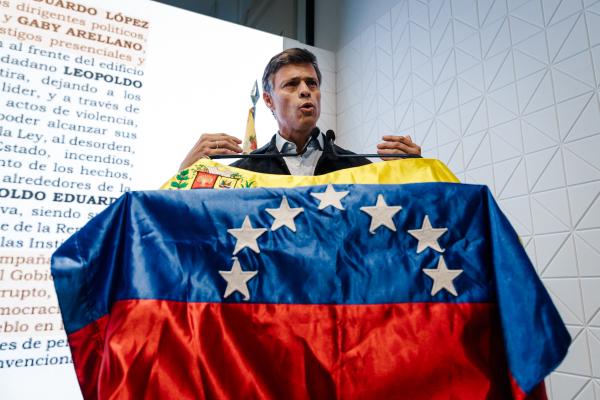
Please join Venezuelan opposition leader Leopoldo López for a discussion on the future of Venezuelan democracy, the role of civil society in credible political and economic reforms, and the pathway to free and fair elections.
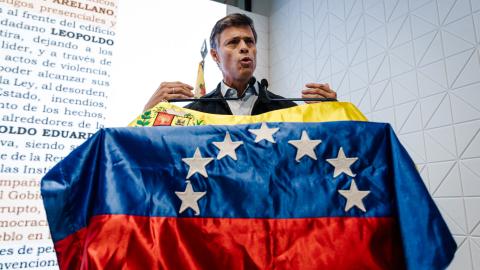



Join Distinguished Fellow Mike Gallagher and Congressman Rob Wittman (R-VA) for a discussion on the congressman’s recently introduced Securing Essential and Critical US Resources and Elements (SECURE Minerals) Act and Congress’s role in securing America’s economic security.

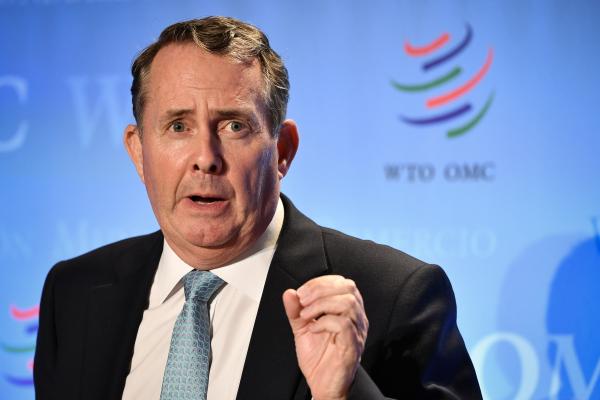
Hudson Institute’s Center for Peace and Security in the Middle East will host Sir Liam Fox for a conversation on the evolving geopolitical landscape in the Middle East.
